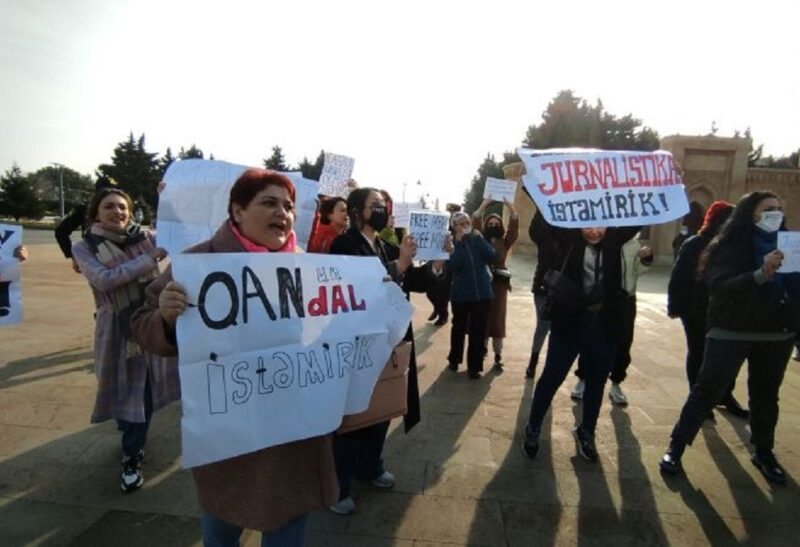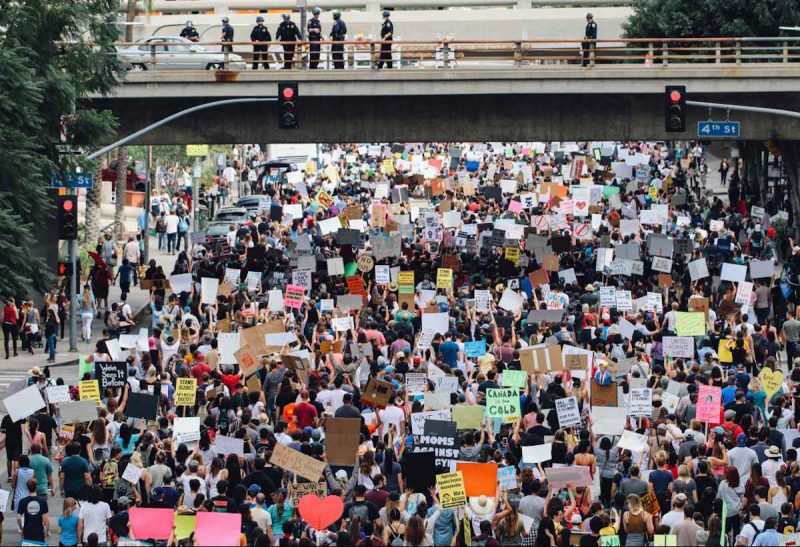Earlier this month I had a chance to attend a Congressional hearing where I listened to a few very interesting speeches on the US’ stance to protect human rights in the greater Eurasia region.
Washington’s policy of “quiet diplomacy” towards post-soviet authoritarianisms has been severely criticized by many rights defenders in the U.S. capital and all around the world.
Now, at the Congress pressure is building on the Obama administration to adopt firm stance against the authoritarian regimes, when highlighting the plight of prisoners of conscience around the world.
“Human rights should be at the top of the list [of the U.S. diplomacy], not somewhere on the page number 5 or 6,” Congressman Chris Smith (R-NJ) stated during the hearing at Tom Lantos Human Rights Commission on Defending Freedoms: Highlighting the Plight of Prisoners of Conscience around the World.
It is unfortunate that today democratic and general rights promoting governments are “failing to put enough pressure on governments where there are egregious human rights abuses taking place,” the congressman added.
“This wasn’t the case decades ago,” he emphasized, criticizing the Obama administration on failing to confront global human-rights violations.
The hearing followed just hours after two top Senators -John McCain and Ben Cardin –introduced a new bill that extends the reach of the 2012 Magnitsky Act, aimed to block human rights abusers from any country, not just Russia, from entering the U.S. and using its financial institutions.
In its part, the Tom Lantos hearing highlighted incidents after incidents of persecution resulting from free exercise of conscience in many parts of the world.
One of the testifiers, Robert George, the chairman of the U.S. Commission for International Religious Freedom, made it clear that although quiet diplomacy has a key role to play, public inattention can lead to more persecution, not more freedom…
“It’s important for these prisoners of conscience to know that they are neither forgotten nor alone. We also want to shine a light on the laws and policies that led to their imprisonment, and we want to hold their governments accountable. Ultimately, we want to see these prisoners freed,” he said.
In fact, he added, at its worst, private diplomacy can be interpreted as lack of serious interest and therefore a license to continue to oppress. And while most countries want to be viewed as fulfilling their international obligations, international human rights mechanisms cannot force compliance.
“Oppressive nations often times need to be reminded and prodded publicly about their obligations to protect their own people from serious abuses, including violations of their human rights.”
Given his position as chairman of the U.S. Commission on International religious Freedom, Mr. George focused on one specific human right, religious freedom, which is enshrined with the other rights in international treaties and understandings.
His group wants to draw the Congress’ attention to the need for the State Department to compile a list of prisoners.
Yet the lawmakers have failed to draw a clear picture of what are the reasons for western administrations to promote a “quite diplomacy” in post-Soviet authoritarianisms. How does it affect the political situation in countries like Azerbaijan?
I’ve asked Richard Kauzlarich, a veteran American diplomat (ret) and analyst, former Deputy Assistant Secretary of State and U.S. Ambassador to Baku (1994-1997), whether it is true that Washington’s quiet diplomacy is failing to protect human rights in countries like Azerbaijan, and if it was the case years ago when he worked in Baku.
“There are limits on diplomacy – quiet or otherwise – in protecting human rights in countries like Azerbaijan…” the Ambassador, currently serves as a Deputy Director of Terrorism, Transnational Crime and Corruption Center at the George Mason University’s School of Public Policy, noted in his response.
As diplomats, he said, “we must be conscious that what we do in public to promote human rights can have negative impacts on the very people we are trying to help, As with doctors, so diplomats must try to do no harm…”
What does using diplomacy to promote human rights mean in practice?
For Ambassador Kauzlarich, sometimes diplomats can promote human rights by attending a trial of an opposition politician as a sign of opposition to a rigged judicial process.
Or, he said, they can go to the hospital to visit a journalist who has been beaten by government thugs.
They can also attend a church service because we have been told the police will try to break up the worship service. Or they can go to the President and point out the consequences of letting an international organized criminal group become involved in a gambling casino, he said.
“During my service in Azerbaijan I did all of the above,” the ambassador emphasized, adding, while some of these were very public; others were not…
“I regarded all of them as quiet diplomacy because they did not involve threats to the government or press conferences. All of them involved clear and consistent demonstration of U.S. government concerns about the observance of basic human rights and the rule of law in Azerbaijan,” he added.
At this stage, the ambassador said, he regrets to say the present regime does not act as if it cares what the U.S. government thinks about human rights in Azerbaijan…
“Therefore it behaves as if concerns expressed about democratic elections or human rights violations can be ignored because the U.S. needs Azerbaijan more (for security or energy supply reasons) than Azerbaijan needs the U.S.. Azerbaijan’s wealth from energy revenues has further limited the leverage of outsiders.”
Also the continuation of Section 907 of the Freedom Support Act (FSA) provides additional grounds for ignoring U.S. please for “justice” in Azerbaijan. “How can the U.S. talk about unjust treatment of people in Azerbaijan while the U.S. continued to follow equally unjust treatment of all Azerbaijanis under FSA 907?” he asked.
Obviously that criticism was just an attempted excuse to avoid observing in practice the very international standards the government committed to observe. “Still it – more than any other single factor — made diplomacy on behalf of human rights in Azerbaijan that much more difficult,” said the ambassador.
What is to be done?
For Kauzlarich, at this point, with the declining strategic significance of Azerbaijan in providing access to U.S. and NATO forces in Afghanistan and developments in the global energy market that reduce the significance of access to Azerbaijani oil and gas, we can practice “values-based” diplomacy.
That means countries like Azerbaijan, who profess they want a strategic relationship with the U.S., “must demonstrate that they in fact share the values of human rights, rule of law and democracy.”
“We should not be afraid to speak frankly (in private as well as in public) about areas where we are prepared to help countries like Azerbaijan to correct obvious shortcomings. We are not just finger pointing but prepared to establish a partnership for change. It’s up to the government in Baku to make that choice,” Ambassador Kauzlarich concluded.



